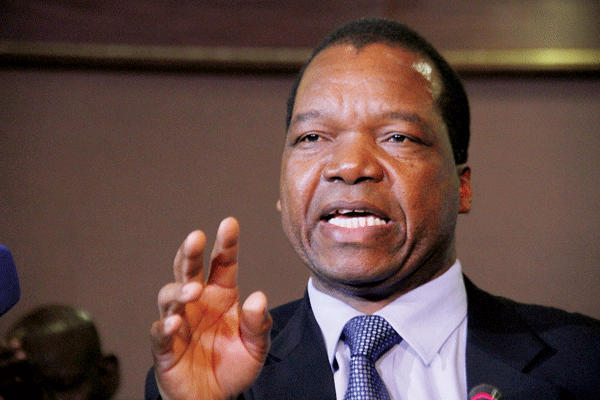
By Vince Musewe Mainstream neoclassical economics, which has been the dominant economic thinking for over a century, is no longer an adequate mental model to interpret and shape the socio-economics of a new reality. Conventional neo-classical theory no longer reflects reality because in the real world, economies are not static and geared towards equilibrium; they are dynamic and in constant flux with constant unpredictability.
“This dynamism is endogenous; it originates within the system, not from exogenous shocks. In reality, the economy is a complex ecology rather than a complicated machine whose parts can be analysed and understood. It does not respond in predictable ways rather, it is path-dependent, with each phase building on the previous one.” (Institute for Public Policy Research (IPPR) titled; “A Complex New World: Translating new economic thinking into public policy”.)
This is a more realistic understanding of the way economic systems develop and change especially in this fast pace information age. It is, therefore, inherently an impossibility to seek to stabilise a complex system because that complexity itself is derived from its systemic instability.
I certainly agree with the above observations as we face the US dollar parallel market rate conundrum.
We now have a predominantly informal economy which is unregulated and contributes an estimated 70% to gross domestic product (GDP). This economy prices the US dollar exchange rate on its own terms, divorced from formal monetary policy, economic fundamentals, policy-maker assumptions and expectations.
Therefore, it is, indeed, an unenviable challenge to have to manage what has become a highly speculative monetary sector where there is perennial speculative profit- seeking at the expense of productive endeavour.
In my opinion, Reserve Bank governor John Mangudya faces a formidable task to try and manage money supply and suppress inflation in an economy where the perception of value is in a currency other than ours and where formal neo-classical economics-based interventions have limited impact. This is an economy where behavioural economics, which is mostly misunderstood, dominates.
It is, indeed, true, as the governor recently acknowledged, that as an economy we cannot wish the parallel market away, but it must not be allowed to be the key determining factor of the general level of prices because, if that becomes the norm, everyone loses out.
- Chamisa under fire over US$120K donation
- Mavhunga puts DeMbare into Chibuku quarterfinals
- Pension funds bet on Cabora Bassa oilfields
- Councils defy govt fire tender directive
Keep Reading
Let us look at the recommendations:
The key challenge we face is that of an ubiquitous and increasing US dollar parallel market rate, a key driver of both inflation and general despondency with regard to the purchasing power of the local currency.
The foreign exchange auction is one tool that the RBZ implemented to try and slow down the rate of increase in the US dollar parallel market rate by diverting bidders from the parallel market to the formal banking system. It has created demand which has been difficult to meet due to unavailability of foreign exchange and, therefore, bids have been merely paper-based and have not been liquidated on time. This has resulted in a huge backlog which has in turn created bottlenecks and inefficiencies in industry supply chains.
The RBZ has now proposed that settlement of successful bids must be done within two weeks and that funds to be availed for auction will actually physically exist. I would prefer bids to be settled within 48 hours, thus creating efficiency within the auction system and predictability.
On the issue of use of local currency, my take is that the issue really is about the perceived value of the local currency and not its availability. Encouraging citizens to use local currency more can only be fully achieved when those citizens have full confidence in the value of the currency.
That confidence cannot be achieved overnight by economic policy alone but through protracted transformative behaviours of political leaders, dealing seriously with corruption, implementing economic and political reforms, accountability of government and leadership and developmental integrity, debt resolution among others. Rebuilding of confidence, therefore, requires a cocktail of both political and economic measures and not monetary policy alone. I, therefore, do not think the paying of some taxes in local currency or payment of fuel will have the desired impact.
On the issue of the now increased retention of foreign currency earners, what we really want is all exporters to retain 100% of their earnings so that they have an incentive to continue increasing their exports.
However, government does need to retain some foreign exchange to pay for essentials so the increase in retention for exporters in various sectors is a welcome improvement.
The 100% retention of foreign exchange earnings in the tourism sector, for example, is a good way to try and revive that industry which has been devastated by COVID-19, but let’s see them also paying their workers good salaries.
Then we come to the increase in daily transaction limits. It has been very costly to have to do multiple transactions because one is limited to say $5 000 a day, so an increase is the right thing to do.
We must remember that it was the abuse of EcoCash which fuelled the parallel market and there was a need to limit transaction amounts.
Increasing the daily limits is a move in the right direction so that citizens and businesses are not constrained when they do local transactions. The caveat here is that money should not be used to buy foreign exchange as it fuels inflation.
There will always be a need to balance the need to ensure that businesses are able to fund operations and also be able to manage inflationary pressures created by excessive money supply.
The RBZ must focus on constraining money supply while ensuring that there is adequate money out there for productive endeavours and not speculation on the parallel market.











